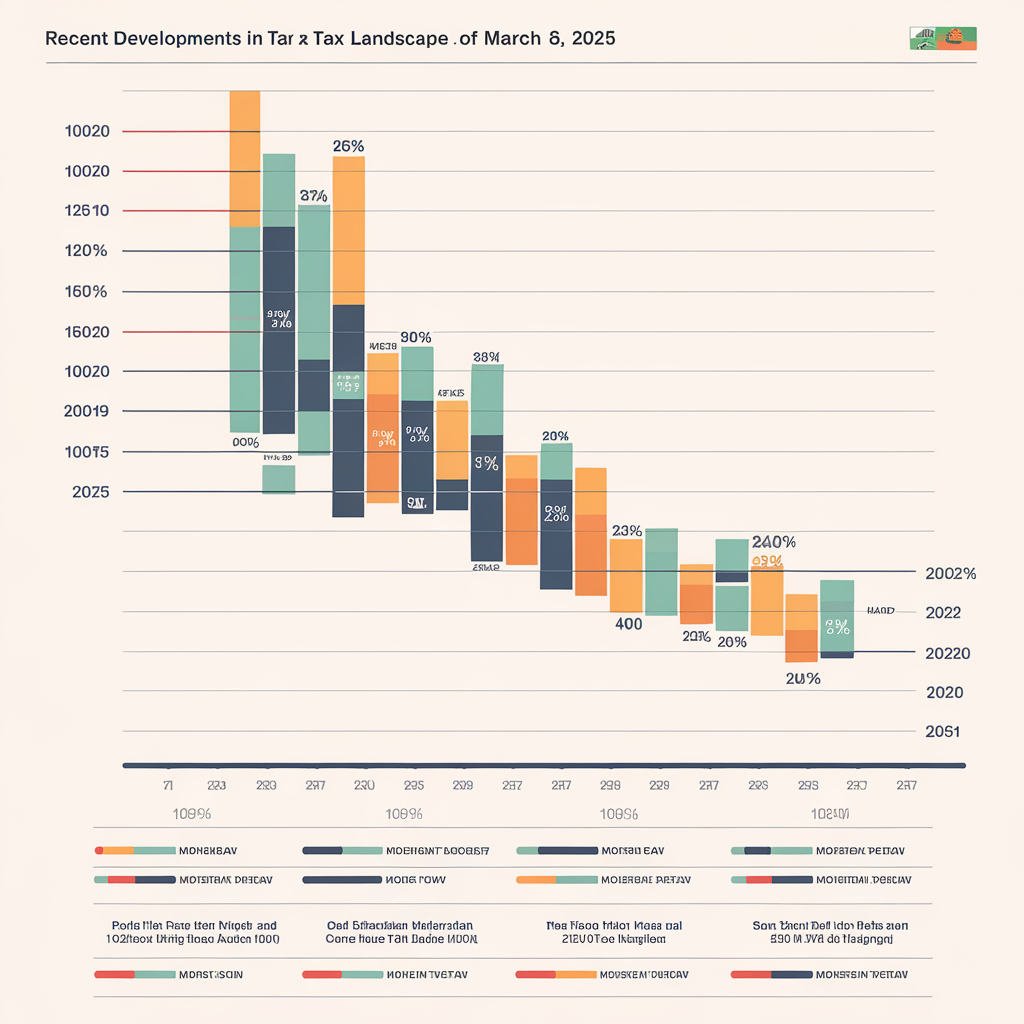As of March 6, 2025, several significant tax-related developments have emerged in India, reflecting the nation’s evolving fiscal policies and international trade negotiations.

1. U.S.-India Trade Discussions: Potential Reduction in Auto Tariffs
The United States is actively pursuing a trade agreement with India that aims to reduce or eliminate tariffs on automobile imports. This initiative is particularly significant for American automotive companies, such as Tesla, seeking entry into the Indian market. India’s current import taxes on cars can reach up to 110%, among the highest globally. While the U.S. advocates for immediate tariff reductions, India is considering a phased approach and is consulting with domestic automotive manufacturers to assess the potential impact on local industries.
2. Proposed Reduction in States’ Share of Federal Taxes
The Indian government is proposing a reduction in the proportion of federal taxes allocated to state governments, effective from 2026. The current share of 41% may be decreased to at least 40%, potentially providing the federal government with an additional ₹350 billion (approximately $4.03 billion) annually. This proposal is driven by the central government’s increasing expenditure needs, especially during economic downturns, and aims to reallocate resources to manage national fiscal responsibilities more effectively.
3. India-EU Trade Negotiations: Focus on Tariffs and Regulatory Standards
Ongoing trade negotiations between India and the European Union are addressing critical issues such as tariffs, market access, and regulatory standards. The EU has requested that India reduce high tariffs on imported goods, including automobiles, whiskey, and wine, which currently range from 100% to 150%. India has expressed willingness to implement gradual tariff reductions. Additionally, discussions are focusing on the EU’s proposed carbon tariffs and deforestation regulations, which India contends could adversely affect its economic interests. These negotiations are pivotal, as the EU remains India’s largest trading partner, underscoring the importance of balancing trade facilitation with domestic economic considerations.
4. Maharashtra’s Amendment to the Value Added Tax Act
The Maharashtra legislature has passed the Maharashtra Value Added Tax Act 2002 (Amendment) Bill, 2024, aiming to increase the state’s revenue. The amendment seeks to expedite tax recovery processes and prevent tax evasion, particularly in the sale of petrol and diesel to boats anchored offshore. The bill also clarifies definitions related to retail outlets and sales, ensuring that transactions between organizations or clubs and their members are appropriately taxed. Deputy Chief Minister Ajit Pawar emphasized the state’s commitment to advocating for GST relief on essential agricultural commodities, fertilizers, seeds, and medicines, highlighting ongoing efforts to support the agricultural sector.
5. Central Government’s Tax Devolution to States
The central government has released a substantial tax devolution totaling ₹1,73,030 crore to various state governments. Maharashtra received ₹10,930.31 crore as part of this allocation. Chief Minister Devendra Fadnavis expressed gratitude to Prime Minister Narendra Modi and Finance Minister Nirmala Sitharaman, stating that this significant support will accelerate development efforts within the state. The funds are intended to bolster capital expenditure, development projects, and welfare initiatives across Maharashtra, reflecting the central government’s commitment to cooperative federalism and balanced regional development.

These developments underscore India’s dynamic tax policy environment, influenced by domestic fiscal strategies and international trade negotiations. The outcomes of these initiatives are poised to have lasting impacts on the nation’s economic landscape.